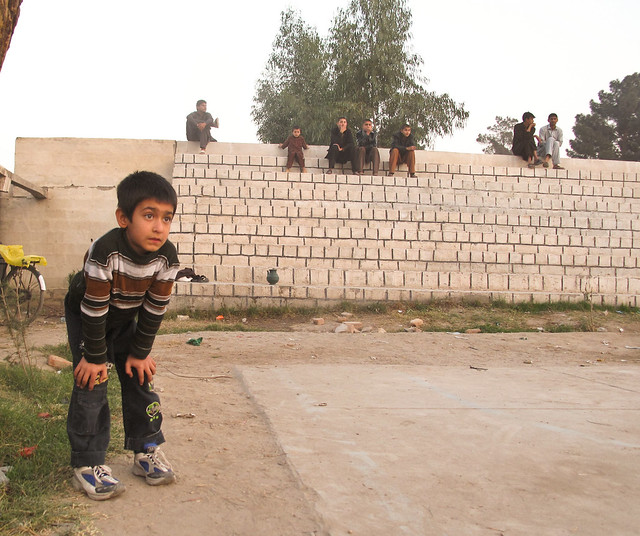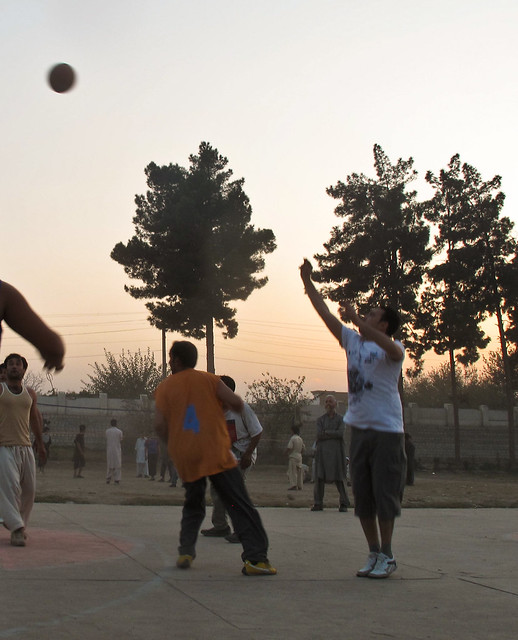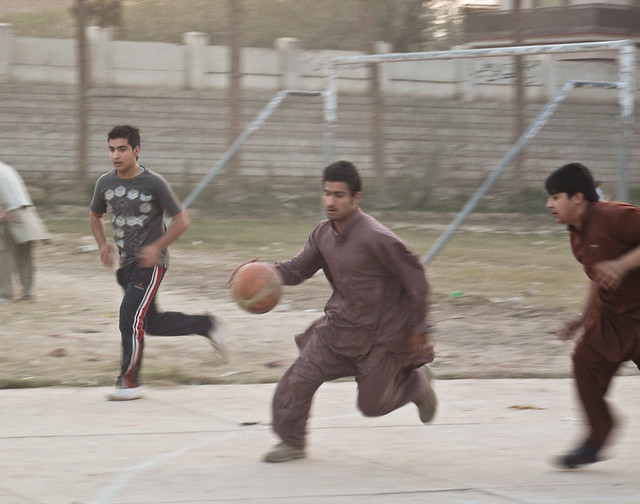Crowd Sourcing: Reporting and Mapping Incidents
 Crowd sourcing tools and applications that are used to report incidents and map them: they can be used in disaster response and relief, election monitoring, reporting human right violation incidents, creating a detailed visual report of an organization’s projects, etc.
Crowd sourcing tools and applications that are used to report incidents and map them: they can be used in disaster response and relief, election monitoring, reporting human right violation incidents, creating a detailed visual report of an organization’s projects, etc.
Following tools and applications are integrated for the above mentioned tasks:
FrontlineSMS: to collect raw data and incident reports
Facebook, Twitter, E‑mail, phone calls, a GPS for exact locations and other means can be used to collect data as well.
Ushahidi or Crowdmap are used as the final report sites.
I trained Shuhada Organization (an aid and relief organization in central Afghanistan) staff to create a map of their projects in the region. Shuhada Organization Map on Crowdmap
My team helped create a visual map of Afghan Election 2010.
Together with the public health hospital we used it for reporting disease incidents in Eastern Afghanistan in 2011.
A T‑shirt in Kabul and a T‑shirt in Islamabad
An Afghan in Kabul, Afghanistan wearing this T‑shirt that says, “ONLY A DEAD TALIBAN IS A GOOD TALIBAN”. And in the bottom it says, “Republic of Afghanistan” in Pashto.

A store in Islamabad, Pakistan selling these T‑shirts that have a photo of Osama bin Laden and under the photo it says, “Well-known” in English and in Arabic.
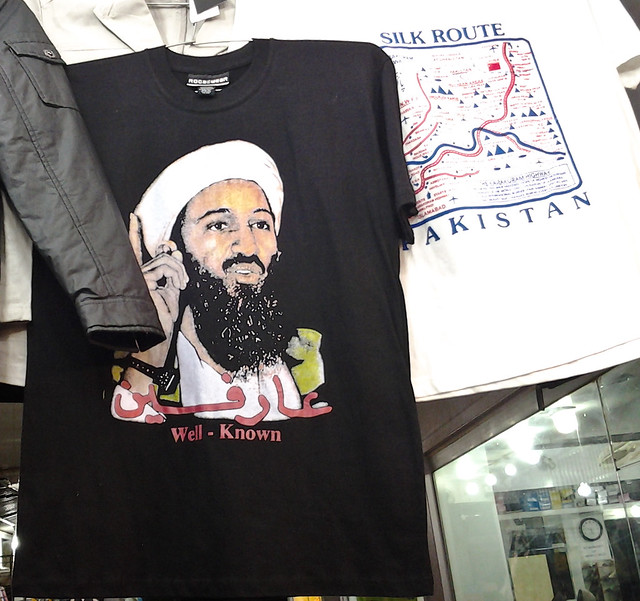
Signs in Islamabad International Airport

Translation: All pilgrims are kindly requested to pray for the betterment of their people and their nation (Pakistan).
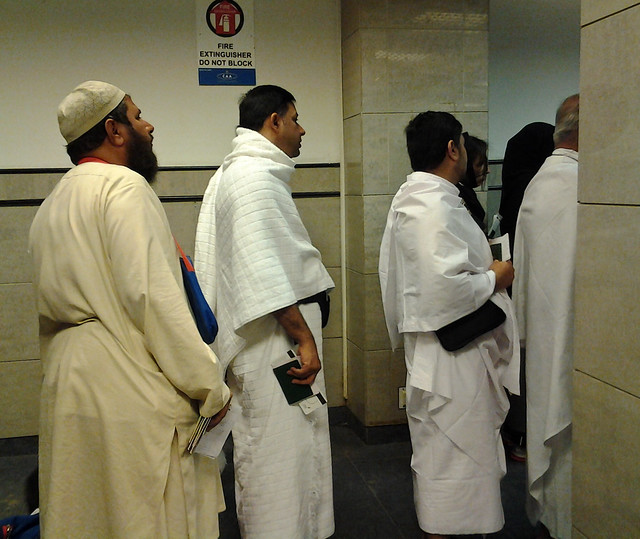
Pakistani pilgrims waiting on a line for their flight to Saudi Arabia

Translation: “Warning: Smuggling drugs into Saudi Arabia is death penalty.”
U.S. Prepares for a Curtailed Relationship With Pakistan
“Mushahid Hussain Sayed, the secretary general of the Pakistan Muslim League‑Q, an opposition political party, summed up the anger that he said many harbored: “We feel like the U.S. treats Pakistan like a rainy-day girlfriend.—: this is a quote from the New York Times article. It’s funny that he thinks that the U.S. treats Pakistan like “a rainy-day girlfriend”. Nobody spends billions of dollars on “a rainy-day girlfriend”.
Pakistan, Afghanistan and the U.S. are three countries that have been affected by terrorism the most. I think it’s extremely important for the three nations to have strong, true and honest relationship with each other. And to prevent terrorists from spreading, other nations’ contribution in this war is vital.
U.S. Prepares for a Curtailed Relationship with Pakistan.
Nangarhar Media Office: Collecting and Disseminating Information
Nangarhar Governor’s Media Office uses simple technology to gather information and security updates and to disseminate that, if/when needed. Nangarhar province in the eastern Afghanistan has 22 districts and every morning, the media office calls the district governors and get updates on security situation in their districts. They use a notepad to jot down any notes during their telephone conversation with the district governors. They always check with the provincial director of National Security Directorate (NDS) to make sure that the information and figures are accurate.
The office emails their daily provincial reports to everyone in the governor’s office but since a lot of the beneficiaries don’t have access to the Internet they have to print the reports and give every employee a hard copy. In addition to that, they also call the local and international journalists in the area and brief them with any new incidents reports. So that the journalists can then follow up on those stories. There is a little phone book that has the phone numbers of journalists in it and they carry it with them around.
Also they call them when there before inauguration ceremonies or other special events if the journalists would want to cover the event and report. The media office call them, usually a day or so ahead of the event.
Nangarhar media office has a conference hall that they use for press conferences and it also serves as a room for journalists to drink tea and work on their reports. There are one or two computers for the media office use only. Most journalists come here with their notebooks to write and edit reports and then they digitize that somewhere else later.

My team is helping Nangarhar Media Office with a special SMS system that will make their work much easier. We’re working together with Paywast, which is a SMS social and business networking company in Afghanistan to make SMS groups for the media office. There will be different groups (for example, journos’ group or district governors’ group) and each group will have members and an admin/owner. If the media office, which is the admin of the group send a message to the journalists group, everyone will receive it. Then if the journalists want to send a message back only the admin receives it. So it’s an interactive group that takes them one text message to get a report to everyone in a certain group. The owner of the group (the media office in this case) can add/remove members from the group. Once the group is up and working they no longer have to carry that phone book with them. They can send/receive messages from their web interface or right from mobile phone.
Innovation and Support to Emergencies, Diseases and Disasters (InSTEDD) uses a similar technology called GeoChat for real-time group communication. GeoChat is an open source group communications technology that lets team members interact and maintain shared geospatial awareness of who is doing what where — over any device, on any platform, over any network.
From Afghanistan to Cambodia
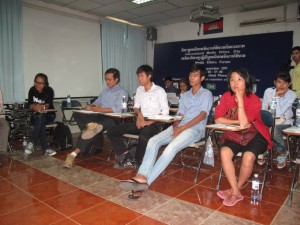 Today, I met with a special group of young citizen journalists and bloggers in Phnom Penh, Cambodia. At this 4 hours event we discussed Online Freedom of Expression in Cambodian. I shared my experiences about blogging and the use of social media in Afghanistan and the problems and obstacles that we are facing in this area. Digital media collective forum features my talk.
Today, I met with a special group of young citizen journalists and bloggers in Phnom Penh, Cambodia. At this 4 hours event we discussed Online Freedom of Expression in Cambodian. I shared my experiences about blogging and the use of social media in Afghanistan and the problems and obstacles that we are facing in this area. Digital media collective forum features my talk.
More details about the event here.
First Graduates of Shaheed Mirranay Education Center
Shaheed Mirranay computer and English language center was built in April 2011. It’s located in Southwest of Jalalabad city- one hour drive from Jalalabad city. Together with my team I set up it’s solar power system and the computer lab. We installed five computers and a printer, four solar panels with a power inverter, and four car batteries. The solar power system generated enough power to run the five energy efficient laptops for six months several hours everyday (After six months, two of the four batteries stopped working now and they are planning to replace them soon).
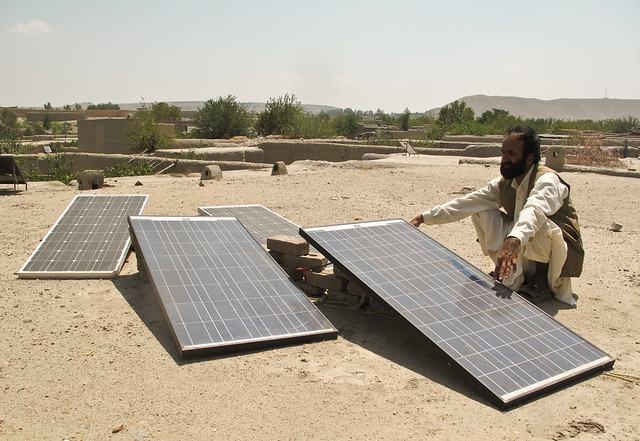

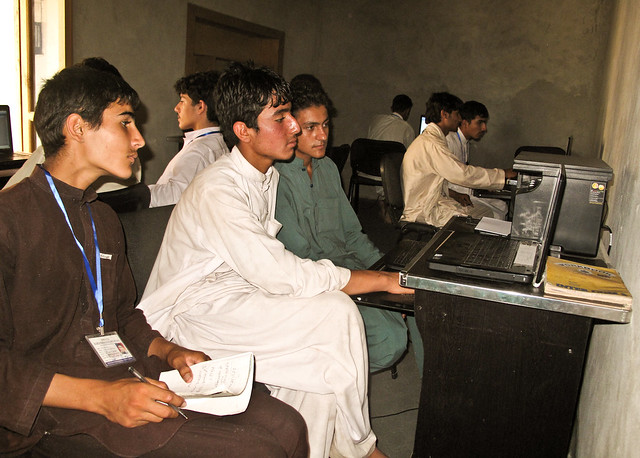
The training center recruited many potential students and selected 317 of them in 18 different level computer and English language classes when it started. With four English language teachers and two computer trainers it is open 6 days a week for 8 hours each day. The center has a general manager and two guards. Seven months after its start, Shaheed Mirranay English language and computer center is awarding certificates to its 300 graduates: 110 students will be awarded certificates in basic computer skills and 190 students will receive certificates in intermediate English language use. I was visiting the training center last week and all the teachers were busy putting finishing touches to their students’ certificates. They’ve already started recruiting new students for their upcoming classes.

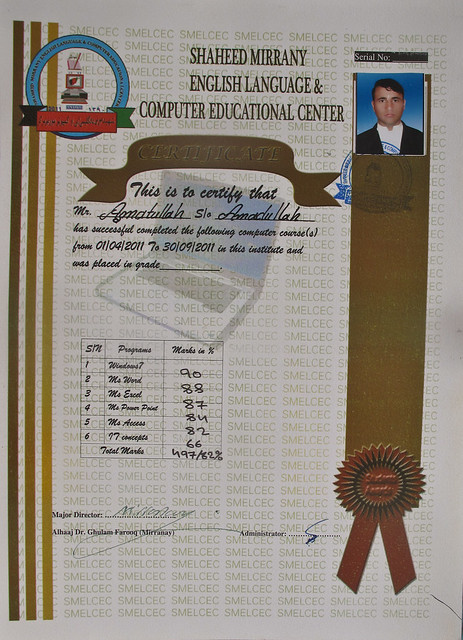
When I was visiting this center in September, all these little kids seemed very sad because they had been told that the center would close down that month because there were no more funds for it. However, they were able to keep it running and keep it funded somehow. This time, the students looked way happier. They didn’t have to worry about the closure.
Compared to the rest of Nangarhar province, Khogyani has the most Taliban and insurgents. Going there, I drove through several bomb craters on the road that had targeted International Security Assistance Force (ISAF) and Afghan National Army (ANA). Taliban and other insurgents exploit teenagers and little children by giving them a bomb to plant on the road. They give them $15 for each bomb they plant. The day before my visit, two US army tanks had been blown up by an Improvised Explosive Device (IED) on the road in the nearby area of Mimla. Two teenagers that were planting a bomb on the road were killed in an airstrike that day.These kids don’t know anything about bombs and ammunition. Sometimes, they get killed due to premature detonation.
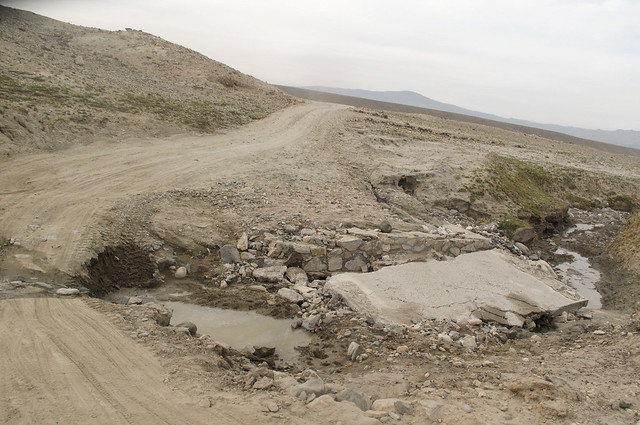
Besides insurgency, people also grow poppy on a very large scale in this area. Under the Taliban, their number one income was from growing poppy. It’s still grown here. When I was there, I saw that the district prison was full of detainees who had been captured for growing poppy or for their involvement in other insurgent activities. The district government was redirecting detainees to other prisons in the country.
 Photo credit: Najib Bismil
Photo credit: Najib Bismil
In an area like this which is infested with the Taliban and other insurgent groups, an educational institute plays a significant role in educating the next generation and providing them with the right tools and skills needed to serve their country. They will have a brighter future than that of their ancestors, a decent job and a more sustainable income to support their families. When I was visiting this education center two months ago, one of the students told me, “I want to learn computer and English language to work with an international organization and help build my country.”

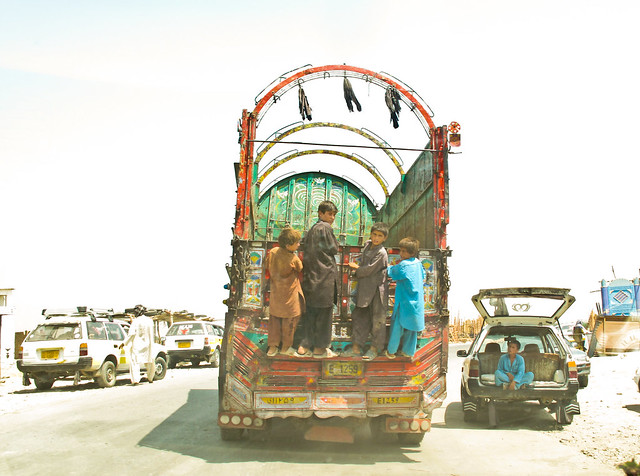
Be in Jail for 12 Years or Marry Your Rapist
Afghan woman jailed for being a rape victim offered release if she MARRIES her attacker
Gulnaz was convicted of adultery because she had sex outside of marriage by being raped. After falling pregnant by her attacker, she and the baby were jailed for 12 years. She has been given the choice to marry her rapist and be freed from jail
Read the full story here.




